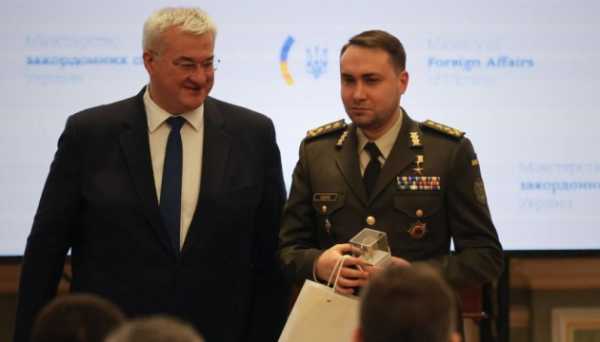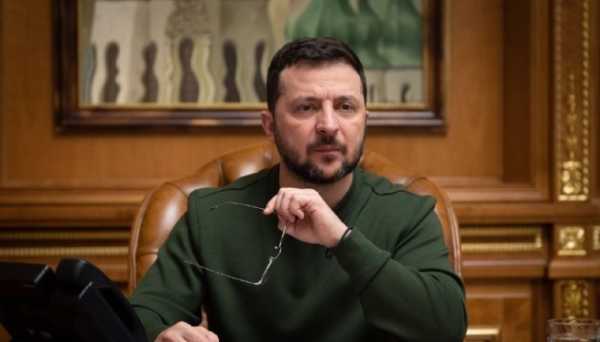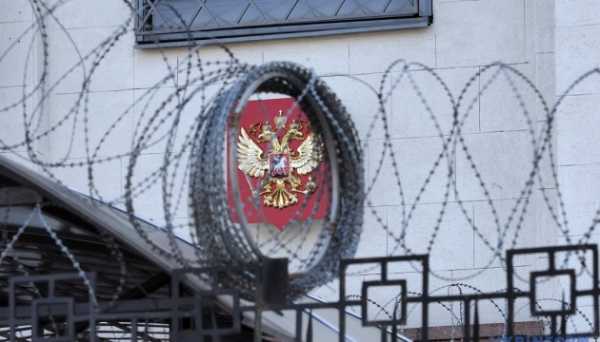Zelensky responds to petition on recalling officials’ signatures from paper signed in Minsk
President of Ukraine Volodymyr Zelensky does not intend to withdraw signatures of his Office Head Andriy Yermak and Ukraine’s envoy to the Trilateral Contact Group in Minsk Leonid Kuchma from the minutes of meeting laying down the creation of the so-called “advisory council” with the participation of unrecognized representatives of the occupied Donbas.
That’s according to the president’s response to an electronic petition published on his website, urging the state leader to immediately recall said signatures.
The minutes of meeting signed in Minsk on March 11 is declarative in its nature, foreseeing no legal consequences, including legalizing the occupied Donbas representatives as recognized actors, according to the president’s response.
“The Minutes of Meeting is not an international treaty as defined in Article 2 of Law of Ukraine ‘On International Treaties of Ukraine’, therefore the law does not regulate the President’s authorization of signing or decision to withdraw signatures from Minsk TCG’s working document of March 11, 2020,” the statement says.
He recalled that representatives of the occupied territories are involved in talks of TCG’s working subgroups with the consent of the three parties – Ukraine, Russia, and the OSCE.
Read alsoAdvisory Council with Donbas militants could only be created if Germany, France approve idea – Vice PM
“The signing of the TCG Minutes of Meeting of March 11, 2020, is part of the ongoing work to implement the Package of Measures to Implement the Minsk Agreements of February 12, 2015, as well as other documents that make up the ‘package’ of arrangments reached in Minsk,” the response to the petition reads.
Zelensky specified that the minutes of March 11, 2020, stated the intention to create a mechanism for the practical organization of consultations – the advisory council.
“It is suggested that the advisory council should become a technical tool with advisory functions within the TCG’s political subgroup to discuss the aforementioned issues with the participation of Ukrainian citizens – both internally displaced persons and Ukrainians residing in the temporarily occupied territories. The issue of setting up the advisory council is subject to substantive deliberation with our international partners – members of the Normandy format,” said the president.
As UNIAN reported earlier, Minsk on March 11 hosted a Trilateral Contact Group meeting with the participation of head of the Ukrainian President’s Office Andriy Yermak and Deputy Head of the Russian President’s Administration Dmitry Kozak. The two agreed to sign the TCG decision on the establishment of an “advisory council” as part of the political subgroup following consultations with representatives of the OSCE, France, and Germany for the implementation of the agreements reached during the Normandy summit. The signing was scheduled to take place at the next meeting in Minsk on March 25.
Later, the Ukrainian-registered Dzerkalo Tyzhnia outlet published a copy of the minutes of meeting signed in Minsk on March 11. According to the document, the criteria and procedure for appointing council members shall be independently determined by Ukraine, de-facto “authorities” of the occupied parts of Donetsk and Luhansk regions, the Russian Federation, Germany, France, and the OSCE. Ten representatives from Ukraine and the Russia-occupied areas of Donbas were supposed to each have the right to cast votes, while one representative each from Russia, Germany, France, and the OSCE were supposed to act in an advisory capacity.
Read alsoAdvisory Council with Donbas warlords: canceled or delayed?
A few days later, about 60 MPs with the Servant of the People Party called on President Zelensky to halt the process of creation of the advisory council as many believed the move would legitimize Russian puppet militants in the occupied Donbas, putting them on par with the Ukrainian government, as well as neglecting Russia’s direct participation in the conflict.



